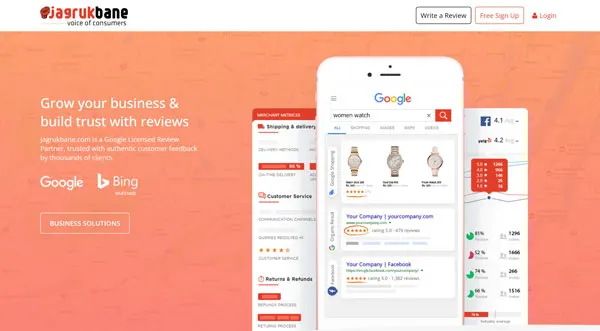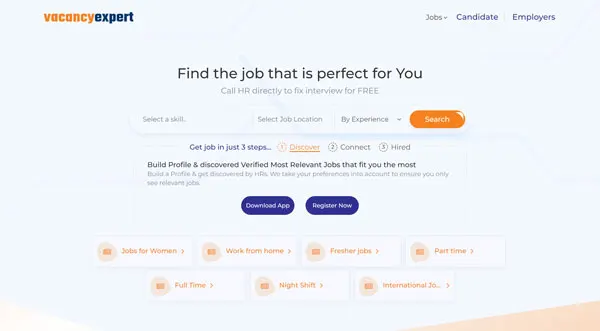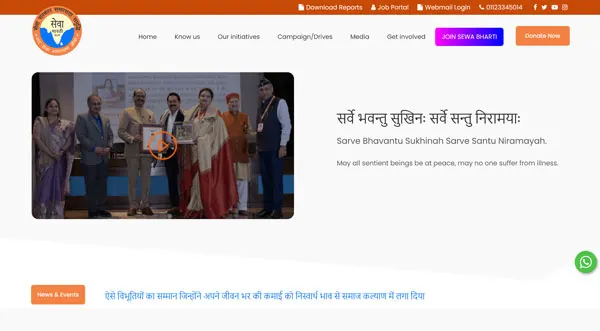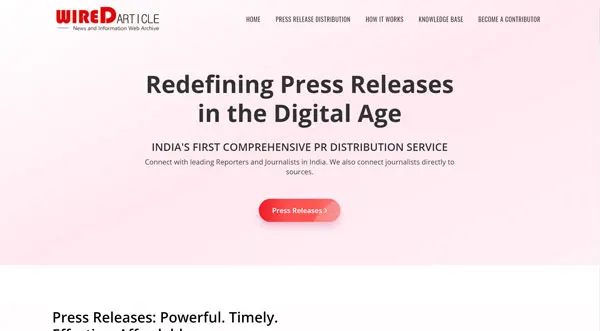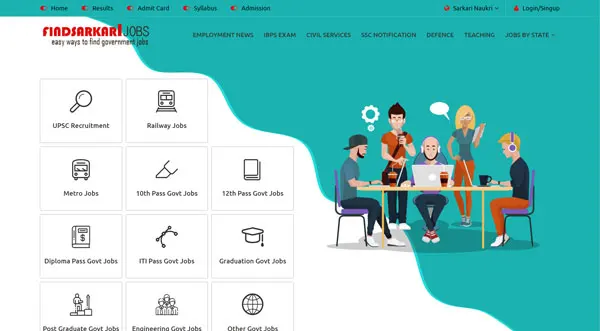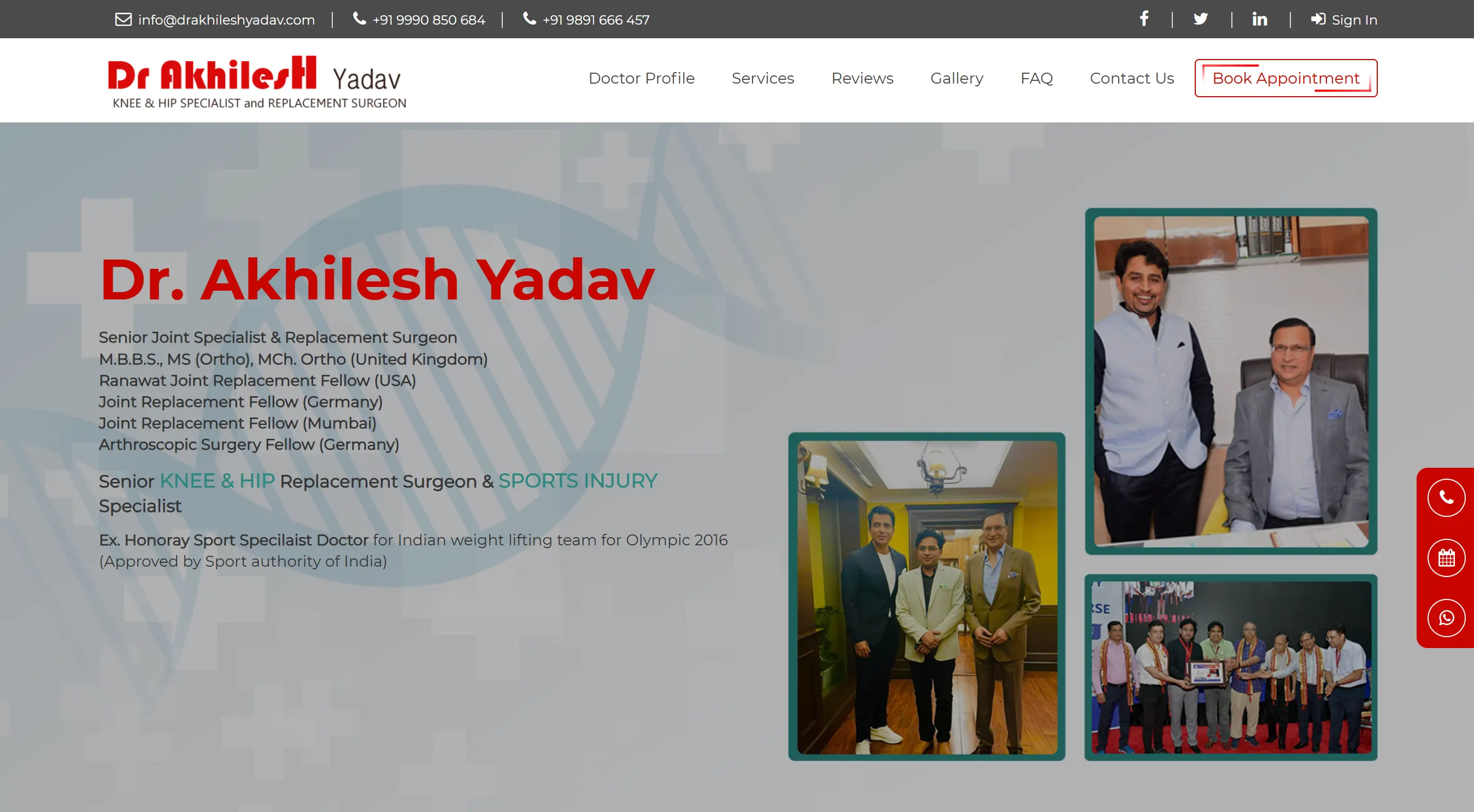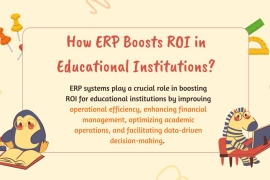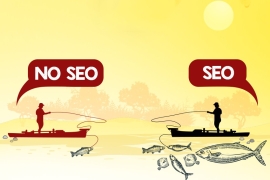Custom Consultancy Website Design
Provide secure, scalable custom web application based on latest technologies
Dynamic Websites Design & Development
Design smart, user friendly web application to increase the user engagement
Leading Mobile Application for Consultancy Business
We design and develop custom mobile application for iOS and Android platforms
Responsive Consultancy Website Design
Develop fully responsive website design based on latest technologies.
Favorite Professional Consulting Websites Design
The ultimate goal is to provide consultancy businesses with a powerful online platform to showcase their expertise, attract clients, and drive business growth. Content creation services help communicate the consultancy's services, industry knowledge, and thought leadership effectively. SEO strategies are implemented to improve search engine visibility and attract organic traffic. Additionally, consultancy website design services may include branding and graphic design elements, analytics integration, conversion tracking, and ongoing website maintenance and support.
- Website Design and Development: This involves creating a visually appealing and functional website that aligns with the consultancy's brand identity and target audience. It includes designing the layout, selecting appropriate color schemes, incorporating user-friendly navigation, and implementing responsive design to ensure compatibility across various devices.
- Content Creation: Content is a crucial aspect of any consultancy website. Web services may include creating compelling and informative content that effectively communicates the consultancy's services, areas of expertise, and value proposition. This may involve writing engaging copy, developing case studies, and optimizing content for search engines.
- Branding and Graphic Design: Website design services often encompass branding and graphic design elements to establish a strong and cohesive visual identity for the consultancy. This includes designing a logo, selecting appropriate fonts and color schemes, and creating visually appealing graphics and images that resonate with the consultancy's target audience.
- Search Engine Optimization (SEO): SEO services aim to improve the visibility of the consultancy website in search engine results. This involves optimizing website content, meta tags, and descriptions with relevant keywords, conducting keyword research, implementing on-page SEO techniques, and ensuring the website is structured in a way that search engines can easily crawl and index.
- User Experience (UX) Design: UX design focuses on creating a seamless and intuitive user experience for visitors to the consultancy website. This includes optimizing website navigation, ensuring fast loading times, implementing clear calls to action, and creating user-friendly forms and interfaces.
- Online Presence: A website provides your consultancy with a strong online presence, allowing potential clients to find and learn about your services, regardless of their geographical location or time zone. It serves as a digital storefront that operates 24/7, enabling you to reach a wider audience and generate leads even when you're not actively promoting your services.
- Credibility and Trust: A well-crafted website lends credibility and professionalism to your consultancy. It helps establish trust with potential clients by showcasing your expertise, experience, and successful case studies. Having an informative and visually appealing website demonstrates that your consultancy is legitimate and serious about its services.
- Showcasing Expertise: Your website serves as a platform to showcase your consultancy's expertise, industry knowledge, and thought leadership. Through blog posts, articles, case studies, or whitepapers, you can share valuable insights and demonstrate your consultancy's deep understanding of your niche. This can attract potential clients who are seeking expert guidance and position your consultancy as a trusted advisor.
- Lead Generation: A well-optimized consultancy website can serve as a powerful lead generation tool. By including strategically placed contact forms, call-to-action buttons, and clear contact information, you can encourage visitors to reach out and inquire about your services. Additionally, by integrating lead capture forms or newsletter sign-ups, you can gather contact information for future marketing efforts.
- Improved Client Communication: Your website can facilitate better communication with existing and potential clients. By providing clear contact information, including email addresses and phone numbers, you make it easier for clients to get in touch with you. Additionally, you can integrate chatbots or live chat features to provide instant support and address client queries in real time.
- Scalability and Flexibility: A website allows your consultancy to scale and expand its reach without significant physical limitations. As your consultancy grows, you can easily add new services, update content, and incorporate new features or functionalities into your website. This flexibility enables you to adapt to changing market demands and stay ahead of your competitors.
- Cost-Effectiveness: Compared to traditional marketing and advertising methods, a consultancy website is a cost-effective marketing tool. It requires relatively low maintenance costs, especially when compared to physical offices or offline advertising. Investing in a well-designed website can provide long-term benefits and generate a higher return on investment.
- Define your consultancy brand and target audience: Clarify your consultancy's brand identity, mission, and values. Determine your target audience, their needs, and how your services can help solve their problems or meet their goals. This understanding will guide your website's design, content, and overall strategy.
- Choose a domain name: Select a domain name that reflects your consultancy's brand and is easy to remember. Ideally, it should be short, simple, and relevant to your services. Use domain registrar websites to check the availability of your desired domain name and purchase it.
- Secure web hosting: Web hosting is a service that stores your website files and makes them accessible online. Research and choose a reliable web hosting provider that offers good performance, uptime, security, and customer support. Consider factors like hosting plans, scalability, and pricing before making a decision.
- Plan your website structure and content: Determine the key pages and sections your website should have based on your target audience's needs. Common pages for a consulting business website include home, about, services, case studies/portfolio, testimonials, blog/resources, and contact. Create a content plan that outlines the information you want to include on each page.
- Design and develop your website: Depending on your technical expertise, you can choose to build the website yourself using website builders like WordPress, Wix, or Squarespace, or hire a professional web designer/developer. Ensure your website design is professional, visually appealing, and aligned with your brand identity. Use clear navigation, legible fonts, and complementary color schemes.
- Create compelling content: Write persuasive and informative content that clearly communicates your consultancy's services, expertise, and value proposition. Craft engaging copy, focusing on how your services can benefit your target audience. Develop case studies or success stories to showcase your past projects and results. Pay attention to search engine optimization (SEO) best practices to improve your website's visibility in search engine rankings.
- Optimize for mobile devices: With a significant portion of internet users accessing websites on mobile devices, optimize your website for mobile responsiveness. Ensure it loads quickly, adapts to different screen sizes, and provides a seamless user experience on smartphones and tablets.
- Incorporate contact information and calls to action: Make it easy for visitors to contact you by prominently displaying your contact information, such as phone number, email address, and physical address if applicable. Include clear calls to action throughout your website, encouraging visitors to take the desired actions like requesting a consultation or signing up for your newsletter.
- Integrate analytics and tracking: Set up website analytics tools like Google Analytics to track your website's performance, user behavior, and conversion rates. This data will help you measure the effectiveness of your website and make data-driven decisions for improvement.
- Launch and promote your website: Once your website is ready, launch it by connecting your domain name with your hosting provider. Promote your website through various channels, including social media, email marketing, content marketing, and networking events. Leverage SEO techniques to improve your website's visibility in search engine results.
- Personalization: Personalization will play a crucial role in the future of consultancy websites. Tailoring the website experience based on user preferences and behavior will enhance engagement and provide a more personalized journey for each visitor. This can be achieved through dynamic content, AI-driven recommendations, and customized user interfaces.
- Interactive Features: Interactive elements, such as chatbots, virtual assistants, or interactive tools, can enhance the user experience on consultancy websites. These features can provide instant support, answer common questions, and assist visitors in finding relevant information. As AI and natural language processing technologies advance, these interactive features will become more sophisticated and valuable.
- Data-driven Insights: With the increasing availability of data and analytics tools, consultancy websites will leverage data-driven insights to optimize their strategies and improve client outcomes. Websites will incorporate advanced analytics and machine learning algorithms to track user behavior, identify trends, and provide actionable insights for clients.
- Virtual Consultations: The rise of remote work and virtual communication has opened up new opportunities for consultancy websites to offer virtual consultations and advisory services. Video conferencing, screen sharing, and collaborative platforms can be integrated into consultancy websites, allowing consultants to interact with clients in real time, regardless of their location.
- AI-powered Recommendations: Artificial intelligence algorithms can analyze client data, industry trends, and market information to provide personalized recommendations and insights. Consultancy websites can utilize AI to offer tailored solutions, predict client needs, and suggest relevant services or resources.
- Voice Search Optimization: With the increasing adoption of voice assistants and smart speakers, optimizing consultancy websites for voice search will become important. Websites will need to focus on incorporating voice-friendly content, optimizing for long-tail keywords, and providing concise answers to voice-based queries.
- Augmented Reality (AR) and Virtual Reality (VR): AR and VR technologies offer exciting possibilities for consultancy websites. These technologies can be utilized to create immersive experiences, virtual simulations, or visualizations that help clients understand complex concepts, explore virtual environments, or interact with digital representations of products or services.
- Cybersecurity and Privacy: As the digital landscape becomes more complex, ensuring cybersecurity and protecting client data will be paramount. Consultancy websites will need to prioritize robust security measures, comply with data protection regulations, and communicate their commitment to privacy and confidentiality to build trust with clients.
- Integration with Emerging Technologies: Consultancy websites will integrate with emerging technologies such as blockchain, the Internet of Things (IoT), and automation tools to provide innovative solutions and streamline processes. These technologies can enhance transparency, enable secure transactions, automate data analysis, and provide real-time insights.
- Continued Evolution of Design and User Experience: As technology advances, web design and user experience will continue to evolve. Websites will focus on creating intuitive interfaces, seamless navigation, and visually appealing designs that engage and captivate visitors. Design trends such as microinteractions, responsive animations, and minimalist aesthetics will shape the future of consultancy website design.
Stunning Website Design for Consultants Business
The overall design should be responsive, providing a seamless experience across various devices. A stunning website design for consultants' business not only attracts potential clients but also establishes credibility and professionalism, setting the consultancy apart from competitors. The design should reflect the consultancy's brand identity, utilizing a cohesive color palette, professional typography, and high-quality imagery. A stunning website design for consultants' businesses captures attention and leaves a lasting impression. It combines visually appealing elements with user-friendly navigation to create an engaging experience.
Build an Independent Consultant Website
Delivery informative, user-friendly, client-focused content consultancy website



Why Choose ITSWS Technologies for Consultancy Website Design Services
Here are some reasons why you can put your complete faith in ITSWS Technologies when it comes to your Consultancy Website Design Services needs.
550+
Projects Deliver
50+
Skilled Professionals
350+
Satisfied Clients Worldwide
10+
Years of Experiences
96%
Repeat Business
32+
Customized product
ITSWS charter is to make IT think, talk and perform like a business.





























Clients Testimonials
Excellent work was done by the ITSWS Team
Excellent work was done by the ITSWS team. The team's approach was professional and the delivery was on time while getting the issues fixed within the budget. Thank you, guys!

Dr. Akhilesh Yadav, Senior Knee & Hip Specialist and Replacement Surgeon
The Centre for Knee & Hip CareThe right decisions
The ITSWS Technologies team goes above and beyond to ensure that our needs are met my requirement, and they are always willing to spend the extra time to make sure that we understand everything and that we are making the right decisions.

Omkar Arya, Managing Director
Fastep Multitrade PVT. LTD.Trustworthy and affordable team
Despite several complexities during the initial phase of the project, The team at ITSWS was always very accommodating to our requests and active in their replies. They were flexible and took initiative to suggest better designs for us and felt part of our team. Our website is finally something we can be proud of, thanks to ITSWS!

Roy, Founder & Managing Director
Roys Fashion Limited, BangkokAffordable and Reliable team
Digital agencies need to hand off the implementation of services to remain competitive. ITSWS has a reliable implementation team you can trust and afford.

Avinash Kumar, Director
CMYCK Ltd, LondonOutstanding professionals
Their SEO experts have helped our business generate a high amount of organic traffic & ROI from our primary focus keywords along with the consistent rankings on page one of Google. I surely recommend these outstanding professionals.

Ursula Teubert, Advisory Board Member
Endurance Management Consultancy,DubaiPixel perfect website development
I have been involved in a lot of different websites development projects over the years, but I have never had an experience quite like this. The team was amazing - both in terms of their ability/skills and their communication. A time, on spec website development project, is almost unheard of - but ITSWS pulled it off! I couldn't be happier and will definitely use them again in the future!

Vikas Gupta, Partner
Aswaar Consulting DMCC, DubaiUnwavering commitment to timelines
Itsws Technologies is the best web development organization, developing my website very professional and attractive. The development is really very professional and dedicated, they never left any point during developing the website. Thanks to ITSWS team, our site make a good position in the google search, without the professional and dedicated team it was not possible. They are the great guys to develop the best website.

Mr. Shyam Chandra Pandey, CEO & Co-Founder
Gangotrishakti Food Care Pvt. Ltd.Android Mobile Apps
To provide best software solution with on-demand service, we have taken services from ITSWS Technologies about our company online mobile application. The organization is the best with their commitment and excellent team. They are always willing to go the extra mile, never compromise on quality work, and patiently guide and educate every user. They are providing support properly any time. We are really happy with them

Mr. Shan Dhingra, Head of Business Development
Bosch IndiaA design that is personalized, warm and easy to browse
Our online business portal designed and developed by ITSWS Technologies, they provide me best look site with responsive support. We at, Agrawal Packers Movers avail the website various service from ITSWS, with excellent team response and support. They are excellent and always willing to go the extra mile support, never compromise on quality, and patiently guide and educate every user. Great support by the organization...

Mr. Ram Kumar, Digital Strategist
Agarwal Packers & Movers LtdExtremely Professional Work
We are very happy with the design and layout of our website. ITSWS worked with us for over 2 months on our website...

Mr. Rishi Pal Singh Tomar, MCA Director
IPEM Group of InstitutionsLatest Consultancy Website Design Services Articles
Consultancy Website Design Services, Insights and up-to-date knowledge from us, to you.
ERP systems play a crucial role in boosting ROI for educational institutions by improving administrative efficiency, enhancing financial management, optimizing academic operations, and facilitating data-driven decision-making. Automated fee collection, invoicing, and reconciliation streamline financial transactions, ensuring timely payments and improving cash flow management.
As digitalization continues to advance, it holds the potential to transform education in India, ensuring that students are well-equipped to thrive in the digital age. Digital platforms offer customizable learning experiences that cater to the diverse needs of students with different learning abilities and styles.
Technological advances and innovations in the textile industry have significantly enhanced production efficiency, product quality, and sustainability. As the industry continues to embrace these technologies, it is poised for a future of increased innovation, reduced environmental impact, and greater responsiveness to market demands.
Increasing blog traffic requires a combination of strategies focused on content, SEO (Search Engine Optimization), social media, and engagement.
Google mission is to provide users with the most relevant and trustworthy information in response to their search queries. E-A-T and E-E-A-T serve as guidelines for Google's search algorithm to evaluate and rank content based on its quality and reliability. By prioritizing high-quality, credible content from authoritative sources, Google aims to improve user satisfaction and trust in its search results.
It important to note that the distinction between these stages can be blurry, and the terms Web 3.0, Web 4.0, and Web 5.0 are still evolving and subject to interpretation as technology continues to advance.
We'd love to talk with you
Congratulations! You have landed safely on the land of ITSWS Technologies.
Trust, it's a 'beginning of Long Term Relationship with ITSWS Technologies '. Let's work, enjoy and succeed together 
if you are looking for:

Web Development Solutions within agreed timelines.

Result Driven Brand Building Digitally

Customized e-commerce solutions. The exceptional

Drive Right Leads from the Right Audience
100% Guaranteed SEO Results

60 minutes support post project delivery.













